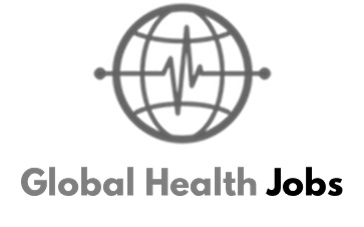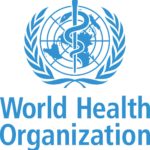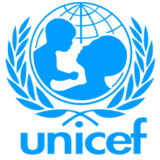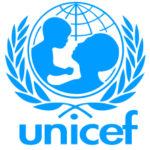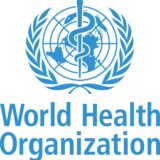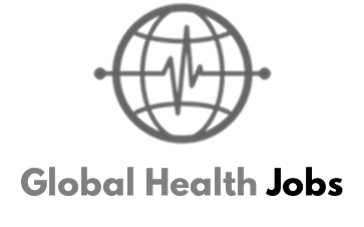Organization: World Health Organization (WHO)
Country: Denmark
City: Copenhagen
Office: WHO ROE Copenhagen
Follow @UNjobs
Consultant: Development of mini module on emergency preparedness for “Strengthening the role of Primary Health Care (PHC) in Health Emergencies and Risk Management”
( 2203995 )
Contractual Arrangement : External consultant
Contract Duration (Years, Months, Days) : 22 months
Job Posting: Apr 27, 2022, 11:08:52 AM
Purpose of the Position
The aim of this consultancy is to (i) design and develop a training module on emergency preparedness for PHC using innovative approaches to expand the knowledge, skills, and attitudes of key stakeholders to improve the health outcomes of people at risk of emergencies by preventing and preparing for future emergencies and providing effective response and recovery capabilities to overcome; and (ii) develop concept note on simulation exercise-based training for PHC on emergency preparedness.
This consultancy will be conducted with the Preparedness, Readiness and Capacity Building (PCB) team under the Country Emergency Preparedness and International Health Regulations (CPI) program area of the WHO Health Emergencies Programme, EURO (WHE/EURO) in collaboration with the WHO Academy, WHO European Centre for Primary Health Care in Almaty, Kazakhstan and WHO European Centre for Preparedness for Humanitarian and Health Emergencies, Istanbul, Turkey.
2. Organizational context
“Primary Health Care (PHC) is a whole-of-society approach to health that aims at ensuring the highest possible level of health and well-being and their equitable distribution by focusing on people’s needs and as early as possible along the continuum from health promotion and disease prevention to treatment, rehabilitation and palliative care, and as close as feasible to people’s everyday environment.” WHO and UNICEF. The principles of PHC were first outlined in the Declaration of Alma-Ata in 1978, a seminal milestone in global health. Forty years later, global leaders ratified the Declaration of Astana at the Global Conference on Primary Health Care which took place in Astana, Kazakhstan in October 2018.
COVID-19 pandemic has shown that PHC has a fundamental role to play in countries response to health emergencies with the potential to care for the vast majority of patients close to their homes by informing patients about the risks and disease, facilitating early diagnosis through testing, tracing of contacts, providing care to patients with mild or moderate cases of COVID-19, and referring patients for further care in the health system. It also plays an essential role in coordinating health services and ensuring continuity of care for patients with chronic diseases as well as maintaining other essential health services, which can help limit hospital stays and reduce the risk of hospitals exceeding their capacity.
The response to COVID-19 also showed that PHC and health services were not systematically prepared to play a better-defined role in prevention of and preparedness to health emergencies. National and local health emergency management arrangements should ensure that primary health care is integrated to all aspects of emergencies management cycle. At the national level, there is a need to recognize and include primary health care in national health emergency risk management policies, plans, programmes, ensuring allocation of resources for better preparedness and response. At the regional, district and community levels, primary care needs to have well-defined and recognized roles, functions and services for emergency prevention, preparedness and response which are integrated in health-facility risk management plans and linked with secondary and tertiary care systems. In addition, future models of care and packages of services should include public health and health care services that be prepared to prevent and timely response to health emergencies.
This consultancy will be conducted with the Preparedness, Readiness and Capacity Building (PCB) team under the Country Emergency Preparedness and International Health Regulations (CPI) program area of the WHO Health Emergencies Programme, EURO (WHE/EURO) in collaboration with the WHO Academy, WHO European Centre for Primary Health Care in Almaty, Kazakhstan and WHO European Centre for Preparedness for Humanitarian and Health Emergencies, Istanbul, Turkey.
3. Description of duties
Deliverable 1
Design and develop a training mini module on emergency preparedness for “Strengthen the role of PHC in health emergencies and risk management” in consultation with PCB/CPI unit and in collaboration with the WHO Academy, WHO European Centre for Primary Health Care in Almaty, Kazakhstan.
1.1 Develop concept note for 6 hour online mini module session on strengthening the role of PHCs in emergencies.
1.2 Outline the course syllabus for the mini module session on strengthening the role of PHCs in emergencies, aligning it with other corresponding mini module sessions and the simulation exercise training package.
1.3 Develop the course materials based on the syllabus, in consultation with relevant technical areas within in WHO.
1.4 Review other mini module sessions under the “Strengthen the role of PHC in health emergencies and risk management” capacity building course and provide relevant input pertinent to emergency preparedness for these sessions.
1.5 Jointly with WHO Academy, adopt content of the course for on-line delivery
1.6 Support delivery of the pilot course.
1.7 Evaluate the pilot course and based on the feedback and evaluation, adjust the course as necessary.
Deliverable 2
Design concept-note for simulation-exercise based training on “Strengthen the role of PHC in health emergencies and risk management” capacity building course in consultation with PCB/CPI unit and in collaboration with the WHO Academy, WHO European Centre for Primary Health Care in Almaty, Kazakhstan and WHO HQ.
2.1 Develop concept note for 4-day face to face simulation-exercise based training on strengthening the role of PHC in emergencies.
2.2 Consult and collate inputs from the different technical units involved in developing this training module.
2.3 Support defining/outlining aim and objectives of the exercise, timeline and funding to support selection of the exercise.
2.4 Support planning of the exercise by outlining the key steps to planning and managing the exercise:
2.4.1 Establish exercise management team responsible for planning, conducting, evaluation and following up the exercise
2.4.2 Develop exercise plan with defined and delegated roles and tasks for the members of the exercise management team.
2.4.3 Identify participants and target audience for the exercise.
2.4.4 Identify facilitators
2.4.5 Develop exercise guide and briefing – includes the rules of the exercise, how it will be conducted and roles and responsibilities of different individuals.
2.4.6 Additional considerations
2.5 Support the development of the scenario and the exercise evaluation plan
2.6 Support delivery of the pilot simulation exercise training course.
2.7 Evaluate the pilot course and based on the feedback and evaluation, adjust the course as necessary.
4. Recruitment Profile
The minimum academic and professional experience required to apply for the roster is outlined below. The actual grade for each individual contract will be determined in accordance with WHO guidelines on minimum requirements at the time of contract issuance.
Functional Knowledge and Skills
Skills in the design, development and evaluation of competency-based adult learning programmes.
Education Qualifications
Essential: Master’s degree in education, adult learning, learning technologies or public health related fields.
Desirable: Master’s degree, or solid experience in emergency management and PHC.
Experience
At least 7 years’ progressive experience in face to face, digital and blended adult learning design for public health program, public health emergency management, public health emergencies, related fields.
Languages
Essential: English
Desirable: Russian
5. Contract duration
22 months at 50%
6. Location
The consultant will be predominantly home based with travel to Member States as required.
The consultant will be under the supervision of the Technical Officer for Preparedness, Readiness and Capacity Building team, WHO Health Emergencies Programme.
7. Remuneration
BAND B
USD 400 per day
8. Additional Information
This vacancy notice may be used to identify candidates for other similar consultancies at the same level.
Only candidates under serious consideration will be contacted.
A written test may be used as a form of screening.
If your candidature is retained for interview, you will be required to provide, in advance, a scanned copy of the degree(s)/diploma(s)/certificate(s) required for this position. WHO only considers higher educational qualifications obtained from an institution accredited/recognized in the World Higher Education Database (WHED), a list updated by the International Association of Universities (IAU)/United Nations Educational, Scientific and Cultural Organization (UNESCO). The list can be accessed through the link: http://www.whed.net/. Some professional certificates may not appear in the WHED and will require individual review.
For information on WHO’s operations please visit: http://www.who.int.
WHO is committed to workforce diversity.
WHO has a smoke-free environment and does not recruit smokers or users of any form of tobacco.
Applications from women and from nationals of non and underrepresented Member States are particularly encouraged.
WHO’s workforce adheres to the WHO Values Charter and is committed to put the WHO Values into practice.
Consultants shall perform the work as independent contractors in a personal capacity, and not as a representative of any entity or authority. The execution of the work under a consultant contract does not create an employer/employee relationship between WHO and the Consultant.
WHO shall have no responsibility whatsoever for any taxes, duties, social security contributions or other contributions payable by the Consultant. The Consultant shall be solely responsible for withholding and paying any taxes, duties, social security contributions and any other contributions which are applicable to the Consultant in in each location/jurisdiction in which the work hereunder is performed, and the Consultant shall not be entitled to any reimbursement thereof by WHO.
More Information
- £ Salary Offer POA
- $ Salary Offer POA
- Experience Levels Senior
- Total Years of Experience 0-5

